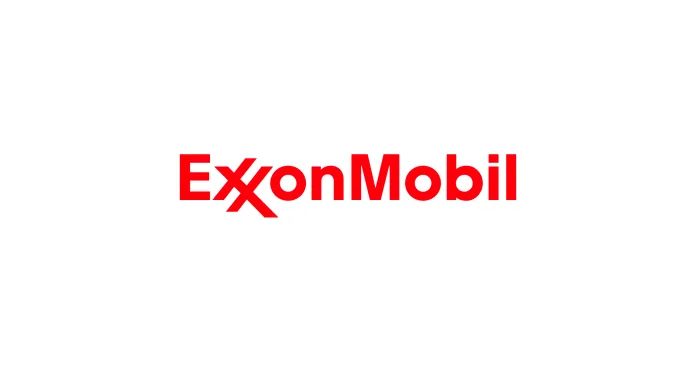
ExxonMobil Strongly Advises Shareholders Against Participating in Below-Market Mini-Tender Offer by TRC Capital
Exxon Mobil Corporation (NYSE: XOM), one of the world’s largest publicly traded energy providers and chemical manufacturers, has issued a public advisory urging its shareholders to reject an unsolicited mini-tender offer launched by TRC Capital Investment Corporation. The unsolicited bid was received in early June 2025 and seeks to acquire up to 1 million shares of ExxonMobil common stock—an amount that represents approximately 0.023 percent of the company’s outstanding shares as of the offer date, June 9, 2025.
Offer Price Significantly Below Market Value
TRC Capital’s offer is priced at $100 per share. This figure is notably lower than ExxonMobil’s recent market valuation. Specifically, it represents a 4.1% discount to the closing share price of ExxonMobil on June 6, 2025—the last full trading day prior to the announcement of the tender offer. Moreover, the $100 per share offer is more than 10% below ExxonMobil’s closing price on June 18, 2025, underscoring a significant shortfall compared to the prevailing market rate.
ExxonMobil has described the offer as “opportunistic” and “misleading,” especially in light of recent stock performance and ongoing investor interest in the company’s long-term energy strategy. By pricing the offer below the market rate, TRC appears to be attempting to profit by exploiting momentary confusion or inattention from individual shareholders who may not be aware of their stock’s current value or the nature of the mini-tender process.
Conditional Terms and Limited Transparency
In its formal response, ExxonMobil emphasized that the offer not only undervalues its stock but also comes with a series of restrictive and potentially unfavorable terms. One of the primary concerns raised by ExxonMobil is that the offer sets a conditional market price for the shares—specifically, $99.06 per share, which is even lower than the nominal $100 offer price. Additionally, the offer is subject to several other vague or unspecified conditions, which further complicate its transparency and reliability.
TRC’s offer documentation does not make clear the full extent of its intent, timeline, or strategy, raising red flags for investors accustomed to the robust disclosure typically required by the U.S. Securities and Exchange Commission (SEC) in standard tender offers. ExxonMobil has made it unequivocally clear that it is not in any way affiliated with TRC Capital, and it disclaims any association with the offer or its terms.
What Are Mini-Tender Offers?
Mini-tender offers like the one submitted by TRC are structured to fly under the radar of federal regulatory requirements. By targeting less than 5% of a company’s outstanding shares, mini-tender offers are able to circumvent many of the disclosure and procedural safeguards mandated by the SEC for larger, more conventional tender offers. These offers are often used by investment firms or arbitrageurs to acquire shares at below-market prices from unsuspecting or uninformed retail investors.
Historically, TRC Capital has launched numerous such mini-tender offers involving the shares of large, blue-chip companies. ExxonMobil’s experience is not unique; rather, it is part of a broader pattern of behavior where TRC attempts to exploit regulatory gaps and investor inattentiveness.
Due to their small size, mini-tender offers are not required to comply with the detailed reporting and procedural standards outlined under the Williams Act—legislation designed to protect investors during substantial acquisitions of corporate stock. As a result, shareholders who tender their shares through such mechanisms do not benefit from the protections typically available in larger transactions, such as full and timely disclosure, offer transparency, and ample opportunity for recourse or revision.
SEC Warning and Investor Advisory
The SEC has previously issued public statements warning about the risks associated with mini-tender offers. According to the Commission, certain bidders may deliberately structure their offers at prices below the current market rate in the hope of catching shareholders unaware. The SEC states, “Some bidders make mini-tender offers at below-market prices, hoping that they will catch investors off guard if the investors do not compare the offer price to the current market price.” In essence, these offers function by relying on a lack of due diligence from investors.
Investors are encouraged to visit the SEC’s official guidance page on mini-tender offers (SEC Mini-Tender Alert) for a full understanding of the risks and considerations associated with such offers.
ExxonMobil’s Recommendations to Shareholders
In response to TRC Capital’s unsolicited offer, ExxonMobil is urging its shareholders to take no action if they have not already responded to the tender request. The company strongly recommends that all investors obtain current, up-to-date market quotations for their ExxonMobil shares and consult with a licensed broker, financial advisor, or registered investment professional before considering participation in the offer.
ExxonMobil has explicitly advised shareholders not to tender their shares, citing the lack of meaningful investor protections, the undervalued price point, and the speculative nature of the offer’s terms. For those shareholders who may have already acted on the offer and tendered their shares, ExxonMobil notes that they retain the right to withdraw their shares at any time prior to the expiration of the offer, in accordance with the guidelines outlined in TRC’s own offering documents.
As of now, TRC Capital’s mini-tender offer is scheduled to expire at 11:59 p.m. (New York City time) on July 10, 2025. However, it is important to note that TRC reserves the right to extend the offer period at its discretion. Investors should monitor TRC’s filings and public disclosures for any changes to this timeline.
Broader Implications for Shareholder Awareness
ExxonMobil’s proactive communication reflects a broader effort among publicly traded companies to educate their shareholders about the mechanics and potential pitfalls of mini-tender offers. Such offers pose a unique threat to retail investors in particular, many of whom may not be aware of the distinctions between SEC-regulated tender offers and mini-tenders. As financial markets grow increasingly complex and sophisticated, investor education and corporate transparency become all the more important.
While mini-tenders like TRC’s may appear innocuous or even advantageous on the surface—especially during volatile market periods—they often carry hidden costs, long-term implications, and liquidity challenges that do not serve the best interests of ordinary shareholders.










